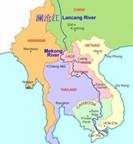题目内容
Imagine this: your parents go away on business, but you have to stay at home alone(独自地). Would life be as easy as when your parents are ____? Would it be a perfect(完美的) holiday for you?
Zheng Chenyu says that she would _____ “Where can I find food? How can I cook it?” The 14-year-old girl says that she knows ____ about cooking.
“I can have tomato and egg soup(汤), but that’s all. I think many of my classmates are the same. We don’t know what to do, or how to ____ ourselves,” said Zheng. “And I may(可能) forget something important. I may probably ______ television and then burn(煮干) the soup.”
_____ Zheng believes that basic life skills(生活技能), such as cooking and washing clothes, are especially important, she doesn’t think teenagers get enough practice.
“As soon as I leave home, I’ll learn to cook. But now parents do almost ______ for us. We’re very lazy,” she said.
Most teenagers only have time for their ______. They don’t learn any life skills until they go to college(大学).
However, Sima Yige doesn’t think so.
“I think I’d be all right. I wouldn’t just eat sandwiches or fruit. I know how to cook some ______ dishes because my mum showed me,” the 13-year-old boy said. In his opinion, many teenagers depend(依靠) too much on their parents, and there is much more to learn than cooking, like “______ up your room or even dressing yourself properly”.
For most teenagers it wouldn’t be a holiday at all.
Zheng Chenyu says that she would _____ “Where can I find food? How can I cook it?” The 14-year-old girl says that she knows ____ about cooking.
“I can have tomato and egg soup(汤), but that’s all. I think many of my classmates are the same. We don’t know what to do, or how to ____ ourselves,” said Zheng. “And I may(可能) forget something important. I may probably ______ television and then burn(煮干) the soup.”
_____ Zheng believes that basic life skills(生活技能), such as cooking and washing clothes, are especially important, she doesn’t think teenagers get enough practice.
“As soon as I leave home, I’ll learn to cook. But now parents do almost ______ for us. We’re very lazy,” she said.
Most teenagers only have time for their ______. They don’t learn any life skills until they go to college(大学).
However, Sima Yige doesn’t think so.
“I think I’d be all right. I wouldn’t just eat sandwiches or fruit. I know how to cook some ______ dishes because my mum showed me,” the 13-year-old boy said. In his opinion, many teenagers depend(依靠) too much on their parents, and there is much more to learn than cooking, like “______ up your room or even dressing yourself properly”.
For most teenagers it wouldn’t be a holiday at all.
| 小题1: |
|
| 小题2: |
|
| 小题3: |
|
| 小题4: |
|
| 小题5: |
|
| 小题6: |
|
| 小题7: |
|
| 小题8: |
|
| 小题9: |
|
| 小题10: |
|
小题1:D
小题2:C
小题3:A
小题4:A
小题5:B
小题6:D
小题7:D
小题8:C
小题9:D
小题10:A
试题分析:本文是一篇记叙文,叙述了假如父母外出,那么十几岁的学生如何在家照顾自己,他们对交换了自己的观点,结果发现他们几乎都不会做饭,平时父母替他们做好一切,他们都只是上大学时才学会生活的技能,所以在这之前就只会做作业。
小题1:考查副词及语境的理解。生活会和你的父母在的时候一样轻松吗? A. at 在; B. out外出; C. in 在; D. around周围,附近。根据your parents go away on business 可知与外出相反的情况,应该是在你的身边,故用around,故选D。
小题2:考查动词及语境的理解。 A. think认为; B. feel 感觉; C. worry担心; D. say说。郑晨宇说她将担心。根据“Where can I find food? How can I cook it?”她担心连食物放在什么地方,如何做就不知道,故选C。
小题3:考查短语辨析及语境的理解。 A. little 少的;后跟不可数名词; B. a little 一些;后跟不可数名词; C. few 很少;后跟可数名词复数; D. a few一些;后跟可数名词复数。14岁的女孩说她知道点关于做饭的事情。根据“I can have tomato and egg soup(汤), but that’s all. 可知她只知道如何做西红柿鸡蛋汤,其他的什么也不会 ,所以这里强调知道的少,这里指的是做饭的常识所以是不可数,故选A。
小题4:考查动词短语辨析及语境的理解。A. look after照顾; B. look at 看; C. look for寻找; D. look out当心,小心。我们不知道做什么,如何照顾我们自己。根据上文可知父母外出,需要自己照顾自己,故选A。
小题5:考查动词及语境的理解。 A. see看见; B. watch 观看; C. look 看; D. listen 听。我可能会只看电视了,把汤煮干了。这里是固定短语是watch television看电视,故选 B。
小题6:考查连词及语境的理解。 A. Although尽管; B. However可是; C. Because因为; D. So因此。因此郑晨宇相信这些生活技能例如:做饭、洗衣服都是很重要的。根据上文可知故选D。
小题7:考查代词及语境的理解。 A. none没有人; B. something 某事; C. nothing 无事; D. everything一切。但是现在父母为我们做了一切。根据We’re very lazy 可知一切事情都是父母来做,故选D。
小题8:考查名词及语境的理解。A. housework家务; B. school 学校; C. homework作业; D. life生活。大部分十几岁的年轻人仅仅有时间做作业。根据They don’t learn any life skills until they go to college(大学).可知他们直到上大学才学会生活的技能,所以在这之前就只会做作业,故选C。
小题9:考查形容词及语境的理解。 A. nice 好的; B. important重要的; C. difficult 难的; D. easy容易的。我知道如何做一些简单的菜,因为妈妈教过我。根据上下文可知这个小男孩只会简单的菜,故选D。
小题10:考查非谓语动词及语境的理解。 A. tidying整理;根据or even dressing yourself properly 可知这里用了dressing ,因为or连接的前后的动词形式应该一致,所以也应该用-ing形式,故选A。

练习册系列答案
 阅读快车系列答案
阅读快车系列答案
相关题目
